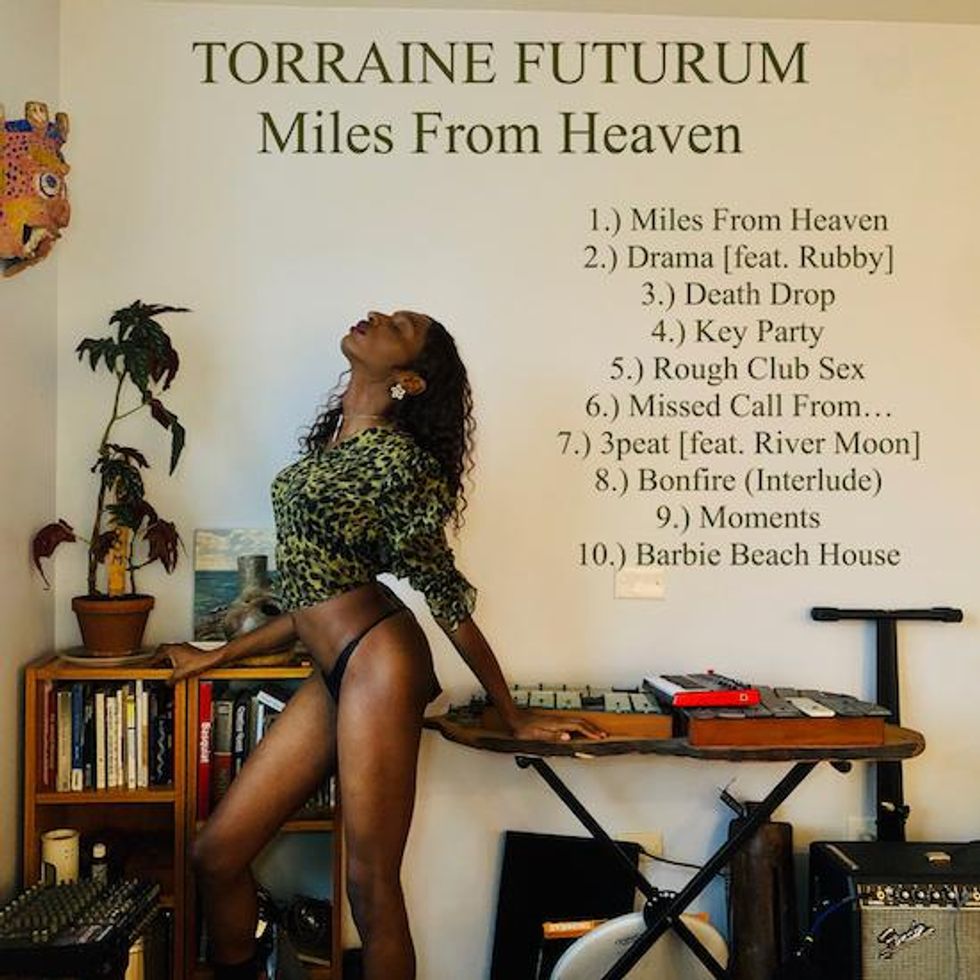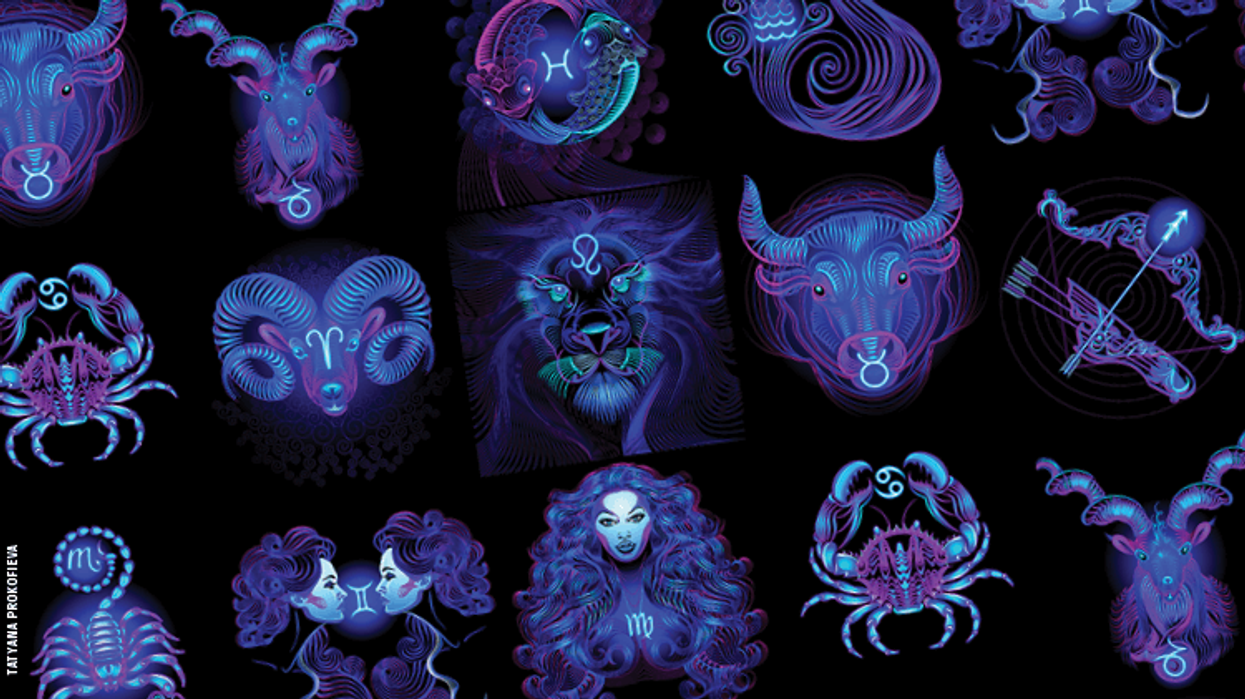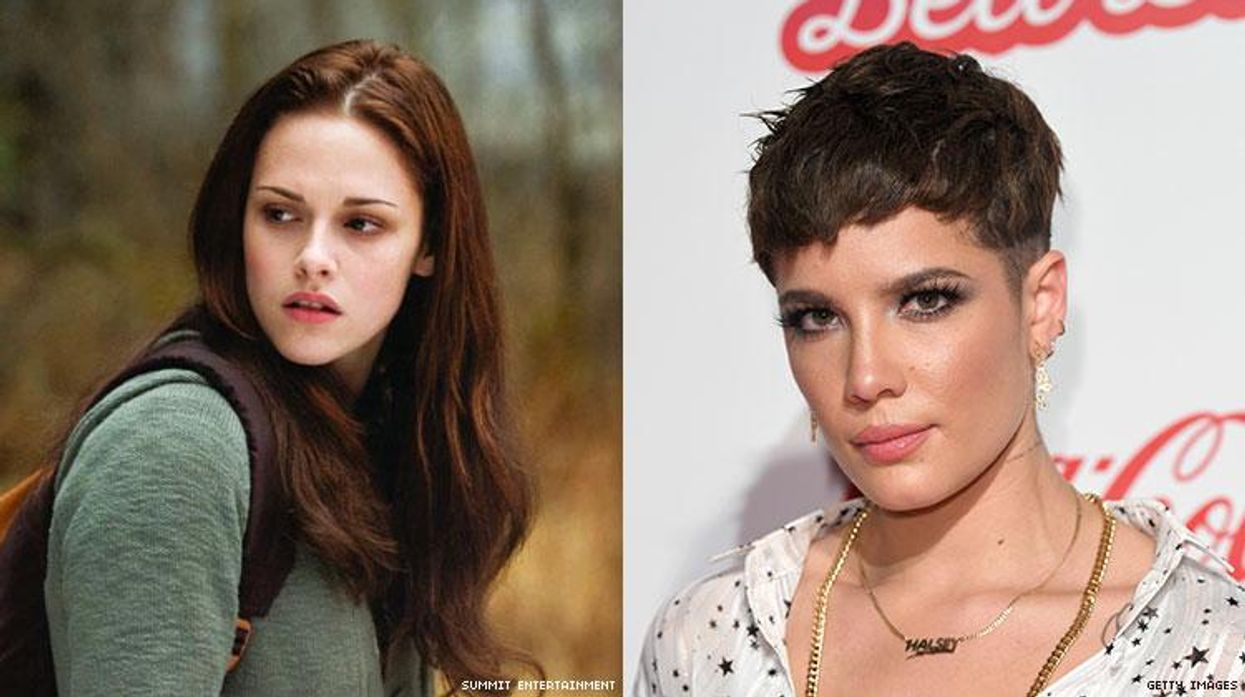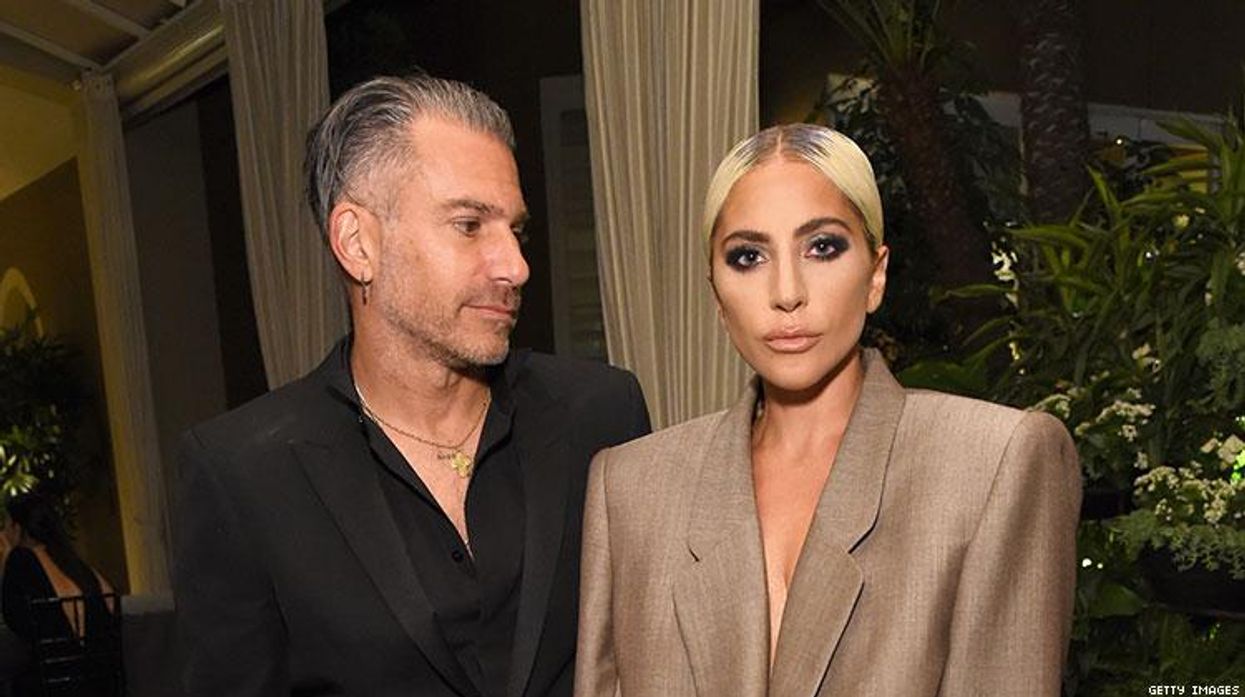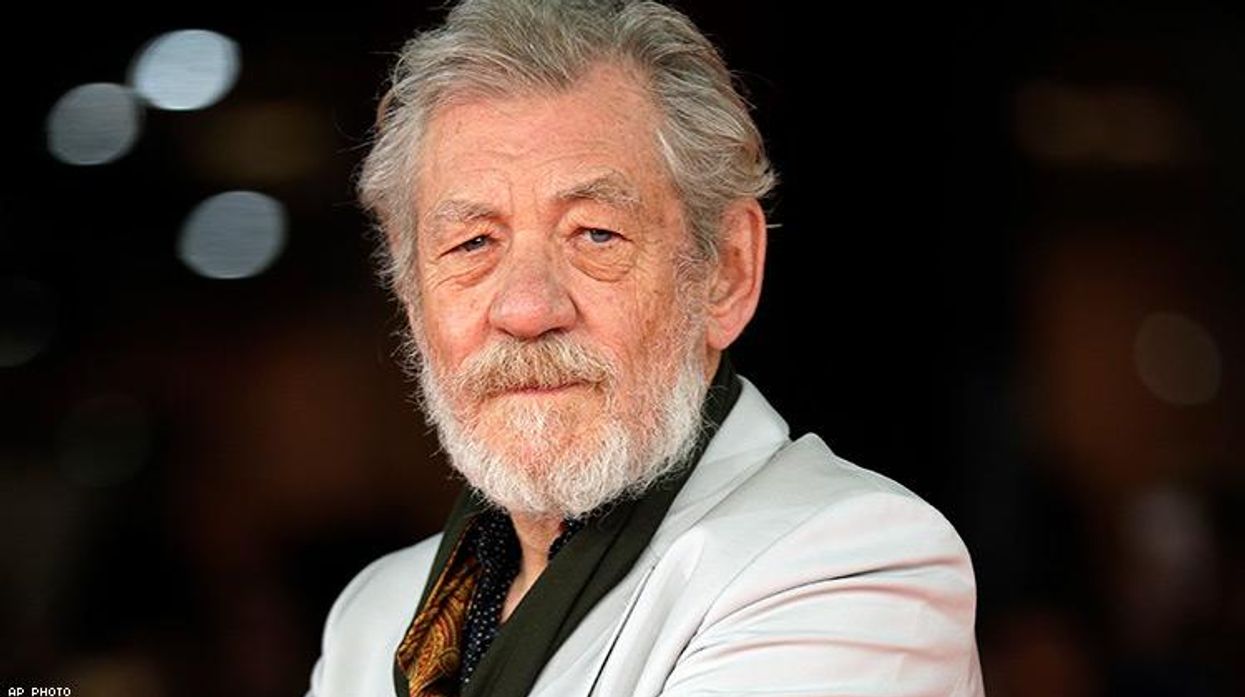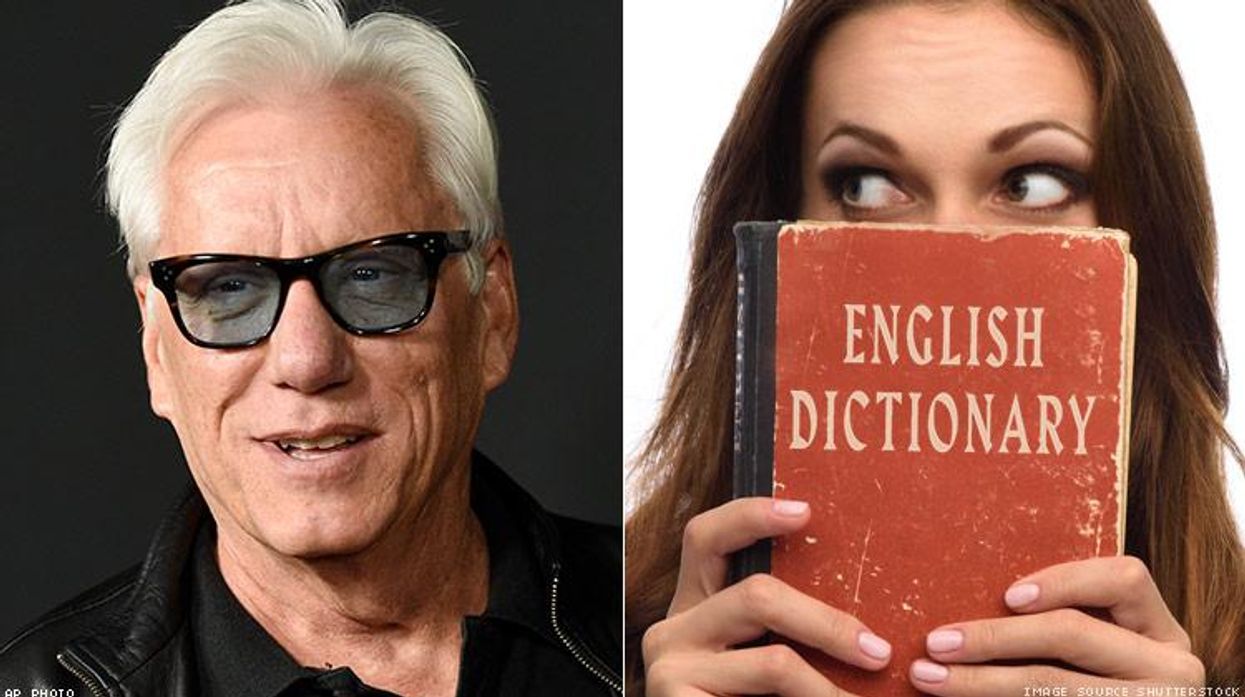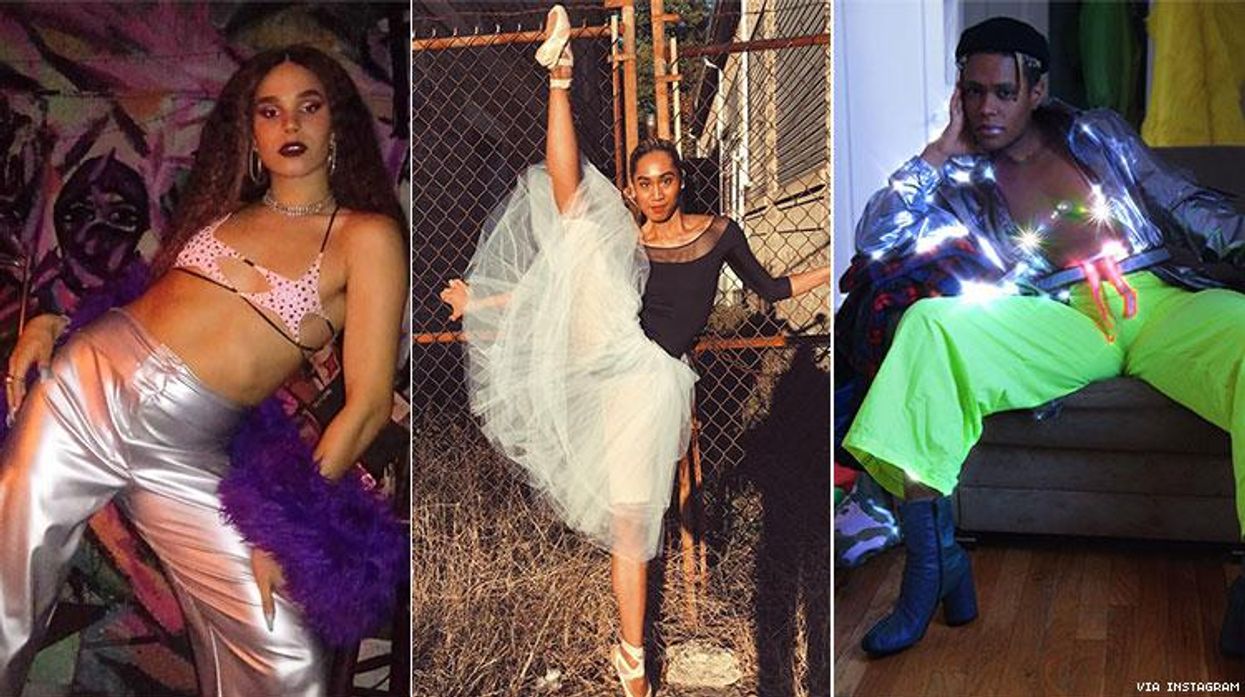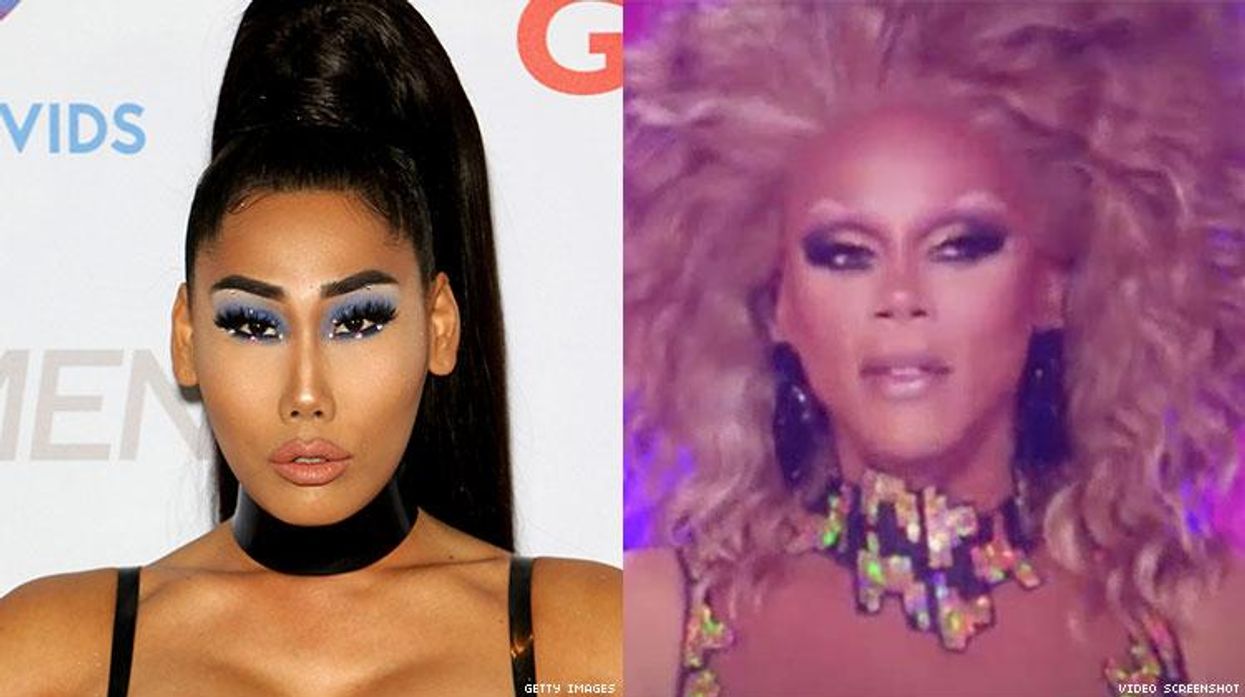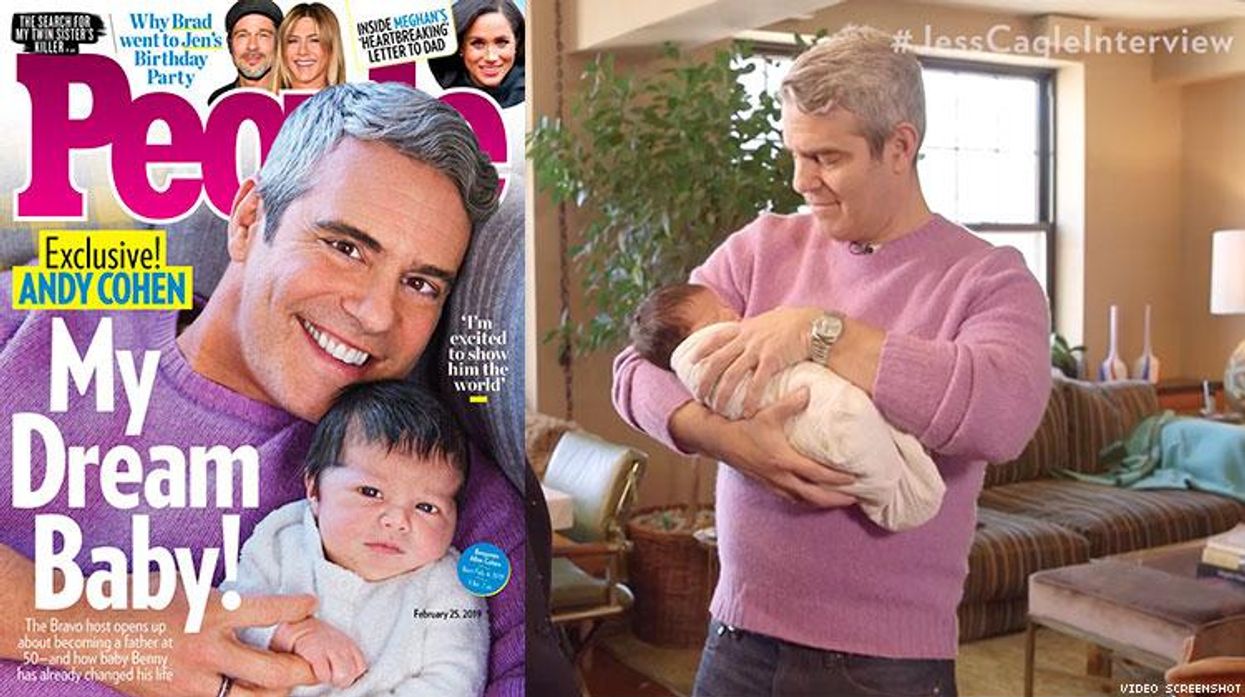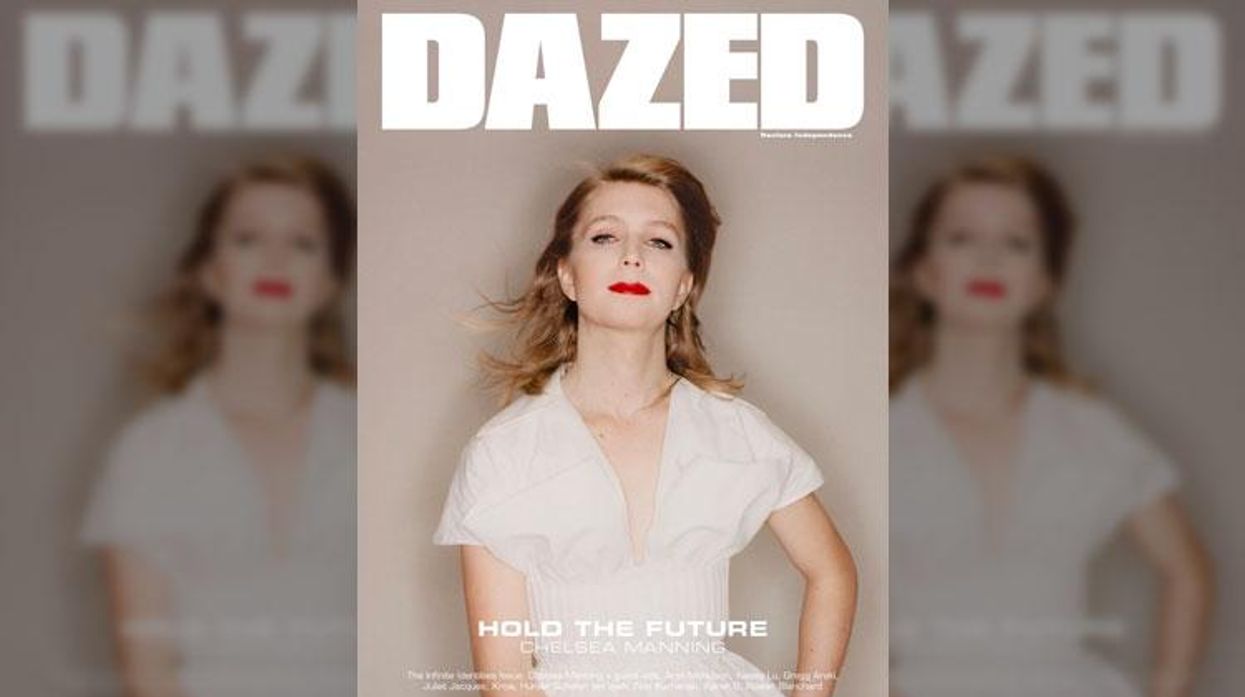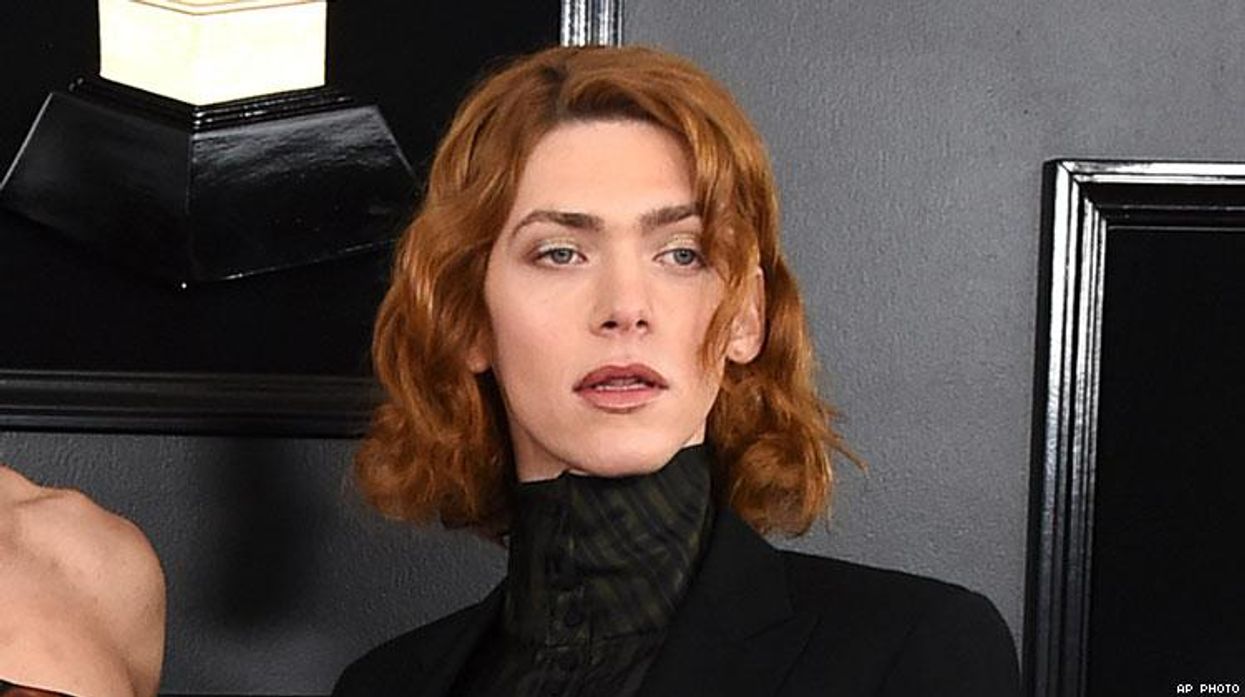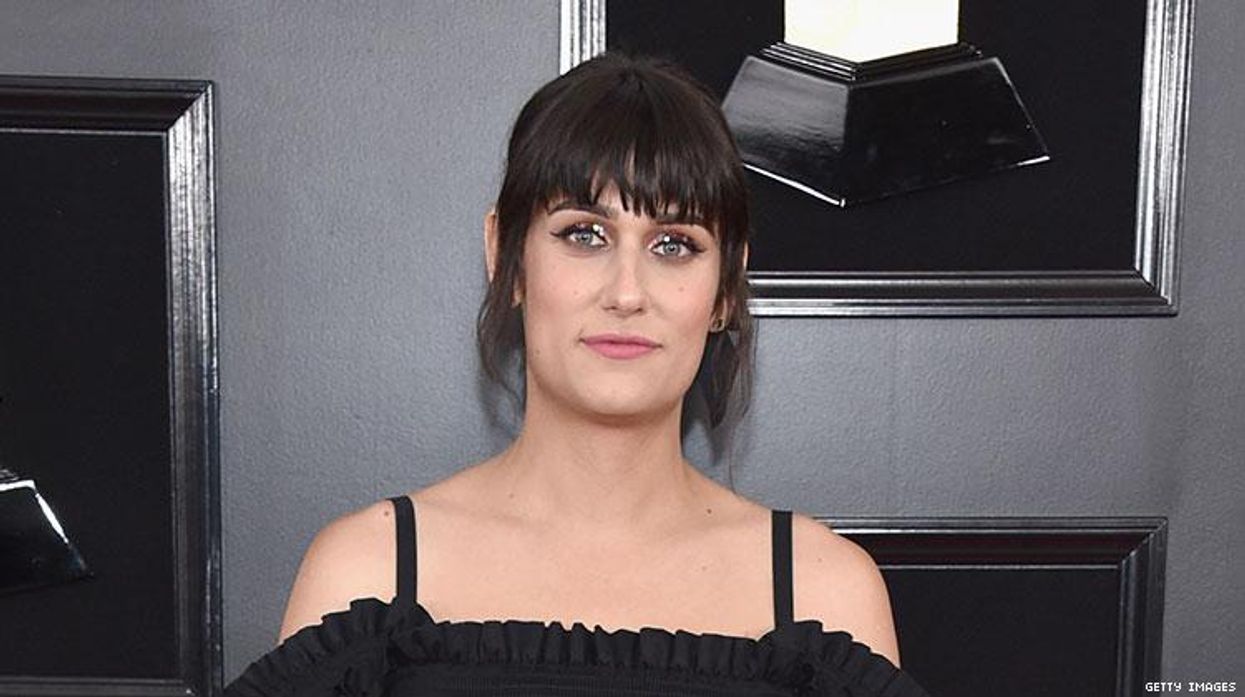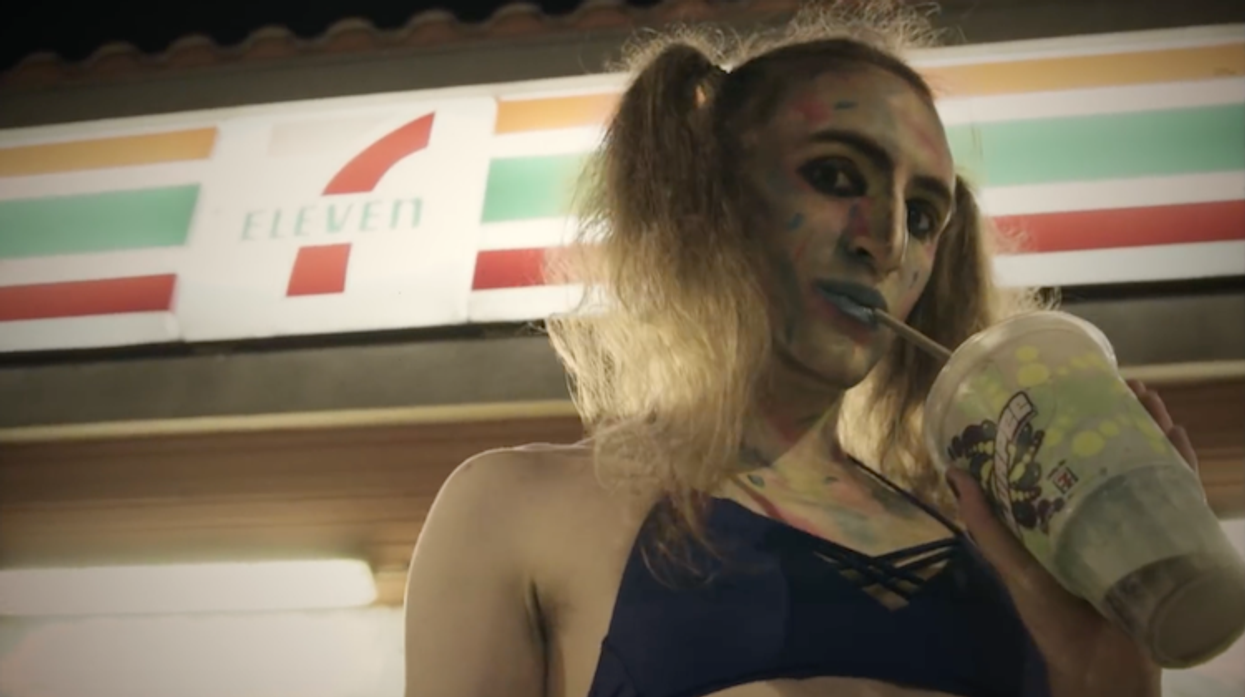Last year, Brooklyn musician and model Torraine Futurum told them. that whatever time she has to spend on this Earth, she wants to spend it doing "whatever the fuck I want." This week, that includes releasing her second album, Miles from Heaven, out now on all major streaming platforms and available to purchase on Bandcamp and iTunes. It also includes deciding that it's now her first album, explaining that "the last one doesn't count."
"My first album definitely...exists, but I took it off streaming," says Torraine in a phone interview with Out. "I think I got a little too excited and released [2017's Colonial] too soon. I was learning how to make music as I was making it, and I just got a little ahead of myself and put the album out before it was really done. When I listen to it now, the project sounds more like a collection of demos that were not exactly songs yet. I've learned so much technical stuff since then."
She says that everything on her new album -- which she executive produced with additional production from Wyatt Bertz, Alex Freedom, and Andrew Mac -- is "far beyond" anything on that first project. She's right. The synth-heavy soundscape, composed and arranged in Logic and GarageBand, is much fuller and richer this time around, washing over you in waves when it's not pounding with anxiety and danceable beats.
In the interview below, Torraine, fresh from modeling deconstructed formal wear in the pages of Out's February issue, talks about non-monogamy, making work about things that hurt you, the Janet Mock sample that opens Miles from Heaven, and why she wants to be destroyed.
OUT: There's a pretty constant theme of creation through annihilation on the album. On "Death Drop" and "Bonfire," you sing about how you don't want to feel the same and how only by being destroyed can you reach your destiny. Does that resonate with where you were at when you made the album?
TORRAINE FUTURUM: Yeah, it's funny you picked up on that. I like getting destroyed. [laughs] With those lyrics in particular, I was trying to convey the complexities of my interactions in all their contradictions, how I need to be fiercely independent yet melt a bit when someone new forces their way into my life and says they're never going to leave.
Throughout the album, it's sort of like I'm pulling a miracle out of destruction. This album is inspired by a terrible breakup. It's almost like a eulogy to a relationship, like having a bird's eye view two years out.
It was originally going to be a more ambitious project, basically two albums where one would be the fun dance tracks and R&B. It was supposed to represent the optimism of meeting someone new and falling in love, how even when it's messy and things come to an end there's something you can celebrate in all of it -- almost like a New Orleans funeral. The second one would be more angry rock music and ambient things, experimental and electronic stuff. Thats where a few of the more recent songs I released like "Forest Hills" and "Unclaimed Perfection, Babygirl," came from. I probably recorded about 34 songs and then distilled them down to 22 tracks and then whittled those down again to the strongest ones. When I was done, I realized I didn't want to commit to a whole other project about this long-dead relationship that inspired it in the first place. The person I broke up with and I are good friends now. I don't think I could commit to being angry for that long.
I always wonder about that, like with Ariana Grande and Sweetener. She wrote a whole album about Mac Miller and Pete Davidson, and now she has to perform that material for like a year or whatever. That must be weird.
That's exactly what it is like. I started working on [what became Miles from Heaven] in April 2017, so all of the songs were written over a year and a half ago. I don't think I've written new lyrics in over a year. It's just been me getting the music right, getting the mixes right, getting the vocals right. I'd already moved through my feelings early on in the process, so the songs just became songs to me after a while. It just became this very clinical process. I could put my feelings aside and just execute songs. I spent a lot of 2018 powering through all the technical stuff -- mixes and masters, getting good vocals, vocal production. Executing an idea is hard. It's easy to fall in love with an idea, but it's a lot harder to execute it. And ideas are nothing without execution.
I also noticed a couple parts on the album where you sing about giving yourself permission to do what you want, like on "Key Party" where you're singing about non-monogamy and how you've got "the right to be." Have you always been good at giving yourself permission?
A lot of the album is about having my mind opened up to all the options there are. A lot of people walk through life, never realizing just how many options they have. I don't want to get that personal, but a lot of the material deals with non-monogamy and the realization I could do that. [laughs] The realization that you can have a partner but you don't have to only be with that partner -- as long as you've both established that and you're not just cheating on them -- was really enlightening for me, as was the realization that you're still dealing with insecurity.
The song "Key Party" is all about that. It's fun and kind of sexy and empowering, but there's also some insecurity and jealousy in there. That line, [singing] "Took a tab of honesty / And I was high for weeks / I control entirely / I'm so inspiring," it's like, "Oh, I'm so cool! I'm so enlightened! I'm so modern! I'm doing this thing!" You think you have it all figured out, like you discovered something new that would solve everything, but then you realize that it's not as cool and glamorous as you thought, that there's still jealousy and insecurity involved with sleeping if other people. There's still messiness.
Before we go, I wanted to ask about the sample on the title track that opens the album. It's from Janet Mock's speech at the 2017 Women's March on Washington, D.C. In the parts you excerpted, she talks about being "a trans woman-writer-activist-revolutionary of color" and asks everyone listening to "see one another" and defending each other "when it is difficult and dangerous." Why'd you choose to open with that?
Well, first of all, Janet Mock is a bad bitch. I'm obsessed with her. She knows it. I played the song for her a long time ago in the summer of 2017 before I had my vocals on it. She was really into it.
When I [put audio from her speech on the song], we were, let's see...April 2017...three months out from Trump's presidential inauguration. I was feeling very on edge, and I wanted to reflect that in this project. I wouldn't say I'm not political -- I don't think I have the privilege to not be political -- but it's not something I want to spend my entire artistic output doing or even talking about in interviews. We expect people from oppressed groups who have a platform to be activists and say political things and represent whatever groups they happen to fall into at any time. I'm not an activist. That's not my dream. But that doesn't mean that I don't deal with all the very political things that are happening, that all the intersections I sit at don't influence my personality or my art.
Throwing Janet's speech into the first song is my way of saying this shit is always in the background of what I do, even if I'm not banging on about it all the time. My existence is inherently political, but I'm not going to use my very limited to reach to spend all my time talking about that, you know?
In a 2018 interview for them., you told actress and artist Eva Reign that you want to spend whatever limited time you have on Earth doing "whatever the fuck I want." With Miles from Heaven, do you feel like you did that?
I love the album. I'm really proud of it. I have such big aspirations, and this feels like a stepping stone to get me where I want to be. I feel like I can stand behind this and feel confident about it as an introduction to what I can do. This is me, essentially on my own. I have no musical training. I taught myself. All I know how to do is what my friends have shown me and what I've figured out. It was hard to make because it was a lot of trial and error, but I think it's a successful proof of concept -- like, here's me where I am right now. I'd like people to pay attention to me and invest in me, maybe collaborate on my next project.
This interview has been edited and condensed for clarity.




